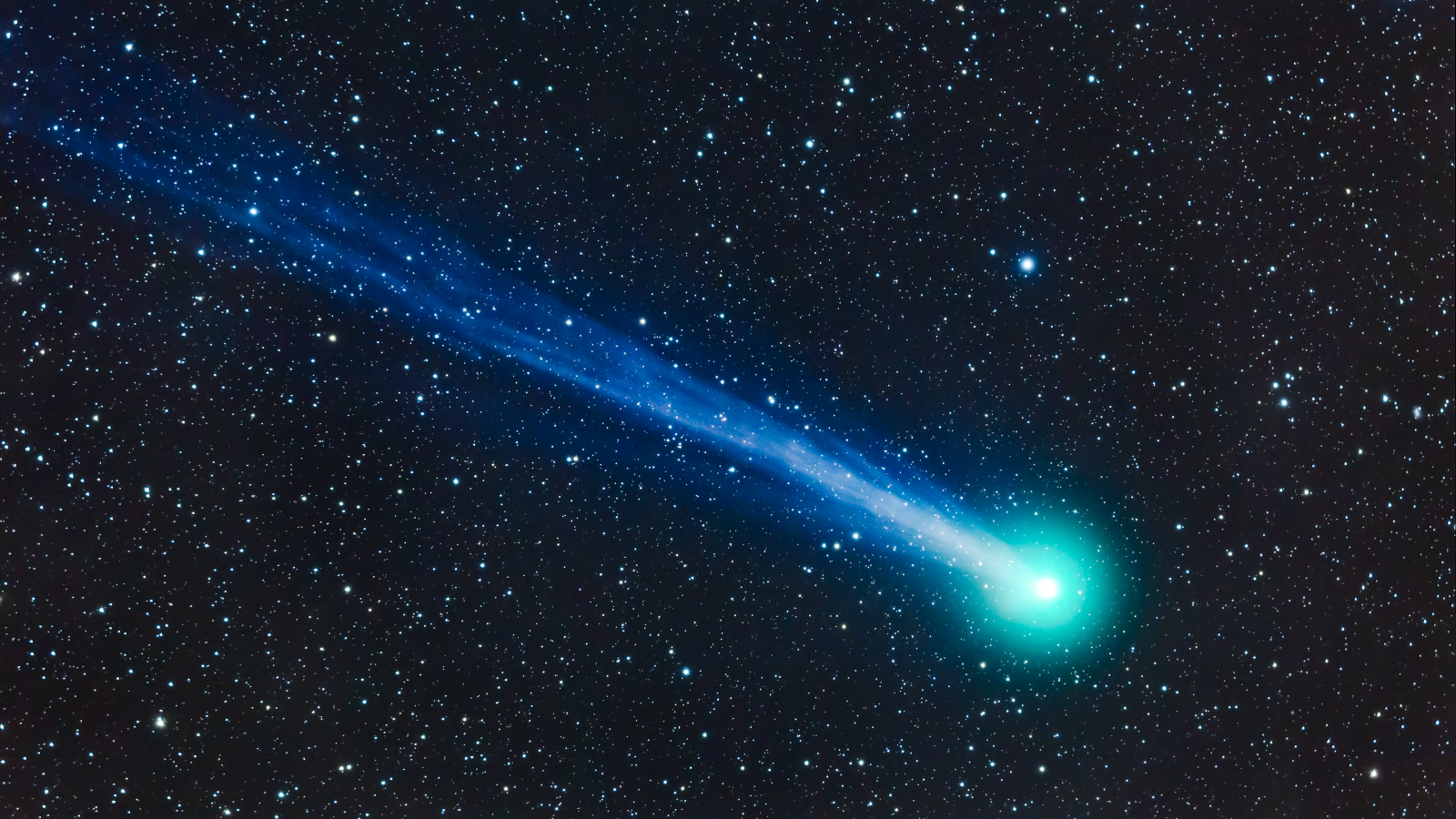Do Scientists and Journalists Get Along?

Get the world’s most fascinating discoveries delivered straight to your inbox.
You are now subscribed
Your newsletter sign-up was successful
Want to add more newsletters?

Delivered Daily
Daily Newsletter
Sign up for the latest discoveries, groundbreaking research and fascinating breakthroughs that impact you and the wider world direct to your inbox.

Once a week
Life's Little Mysteries
Feed your curiosity with an exclusive mystery every week, solved with science and delivered direct to your inbox before it's seen anywhere else.

Once a week
How It Works
Sign up to our free science & technology newsletter for your weekly fix of fascinating articles, quick quizzes, amazing images, and more

Delivered daily
Space.com Newsletter
Breaking space news, the latest updates on rocket launches, skywatching events and more!

Once a month
Watch This Space
Sign up to our monthly entertainment newsletter to keep up with all our coverage of the latest sci-fi and space movies, tv shows, games and books.

Once a week
Night Sky This Week
Discover this week's must-see night sky events, moon phases, and stunning astrophotos. Sign up for our skywatching newsletter and explore the universe with us!
Join the club
Get full access to premium articles, exclusive features and a growing list of member rewards.
Do they even talk? I just ran across new study that suggests they do. First, my own observations, which as any scientist will tell you are very unscientific by virtue of being anecdotal:
Scientists are, in general, interested in discussing their work and patient with our questions, which can range from uninformed (that's a euphemism for "stupid question,") to highly skeptical in nature (what we like to think of as the "probing question"). For some scientists, cooperation clearly stems from a sheer love of what they do and raw enthusiasm to talk about it and share it with the world. Others, I suspect, probably want to do the right thing since their funding comes from an institution or government agency that encourages them to work with reporters and get news of their work out to the public.
On the other hand, science journalists are, by and large, a curious lot. We get excited about a scoop, sure, but we also thrive on the learning that comes with reporting each new story. We feel honored and pretty darn lucky to get to talk to big-thinking researchers who make cool discoveries. And, we know that not all science is good science, so we have to temper that enthusiasm with the ever-skeptical eye.
All that said, all media rely to varying extents on press releases, in which some public information officer (PIO) employed by an institution writes something up that's sent, presumably ready-to-publish, to the media. Some web sites nowadays make a business of posting these press releases without any editing, without any thought. Others do so only rarely. Most media companies employ a mix of approaches — from press release rewrites to moderate reporting to full investigative work that generates unique angles and stories — depending on the merits of a given press release or story idea, the import of a story, resource availability, and gumption.
The new study, from University of Wisconsin-Madison researchers, finds "many mainstream scientists occasionally work with journalists and some do so routinely," according to a statement released by the university today.
The study, compared with previous similar studies, shows that this relationship has been remarkably stable since the 1980s. It is detailed in the current issue of the journal Journalism & Mass Communication Quarterly. It was done by journalism professor Sharon Dunwoody, life sciences communication professor Dominique Brossard and graduate student Anthony Dudo. The conclusion is based on a survey of 1,200 researchers in the areas of epidemiology and stem cell research (which is to say they did not survey astronomers or paleontologists or sociologists or psychologists, all of whom I argue are among the most enthusiastic and talkative of all scientists).
"By and large, scientists speak to journalists, they know it is important and they're willing to do it again," Dunwoody said. "The frequency with which scientists and journalists interact has been pretty stable over time."
Get the world’s most fascinating discoveries delivered straight to your inbox.
About one-third of the respondents said they had up to five contacts with journalists during a three-year period, while another third of the sample said they experienced more than six contacts with reporters over three years, according to the statement. Only one-third of respondents reported having no contacts with journalists.
"The frequencies are definitely encouraging," Brossard said.
The third-third-third finding meshes with some things I've long suspected. There are some researchers who are prolific, for whatever reason, cranking out discoveries or findings with great frequency. Other scientists are simply great at keeping abreast of their field and are helpful in providing perspective ("comment") on others' research. These two groups field a lot of reporter queries by phone and email and, I suspect, make up that first third.
Other researchers toil for months or years on relatively obscure projects and may have flashed across my radar just once or not at all over the years. That's your last third. The others, of course, are in the middle.
Being in either group packs some momentum, one might assume. For example, I'm naturally more wary when interact with a researcher I'm not familiar with, because while by-and-large scientists are honest and respectable and even conservative about touting their work, it's not unheard of for a scientist to boast a little, and a tiny minority will outright make stuff up.
So I was interested in this bit of insight from the study: "It is generally not the case that journalists focus their attention on scientific outliers," according to the statement summarizing the study. "Instead, scientists who interact most frequently with reporters tend to be senior, highly productive researchers or administrators."
"The notion that journalists concentrate on mavericks is not true," Dunwoody said. "That's an important pattern. What it says is that journalists are working mostly with successful mainstream scientists."
Nothing wrong with mavericks, of course, and sometimes they're the only ones who are right. But a journalist has to make a buck, too, and he doesn't want is reputation soiled by parroting a mad scientist who is indeed off his rocker, so the wise journalist with a hot maverick potato on his hands proceeds with caution, seeks outside comment, ponders.
Here's my favorite finding from the study:
Scientists may have a general perception that news media coverage of science is faulty, but that perception does not extend to coverage of their own work, the research indicates. "They often view their own work as being covered well, but that doesn't influence the larger perception," Dunwoody said.
Are there poorly conceived and even downright wrong science stories in the media? Sure. Is it rampant? This study doesn't answer that question, but it offers an interesting perspective from the scientists themselves.
Why does all this matter?
"We need to keep in mind that most people learn about scientific topics through mass media and not informal channels like science museums," Brossard points out. "Hence, the necessity for scientists to engage journalists."
In The Water Cooler, Imaginova's Editorial Director Robert Roy Britt looks at what people are talking about in the world of science and beyond. Find more in the archives and on Twitter.
Robert is an independent health and science journalist and writer based in Phoenix, Arizona. He is a former editor-in-chief of Live Science with over 20 years of experience as a reporter and editor. He has worked on websites such as Space.com and Tom's Guide, and is a contributor on Medium, covering how we age and how to optimize the mind and body through time. He has a journalism degree from Humboldt State University in California.
 Live Science Plus
Live Science Plus











